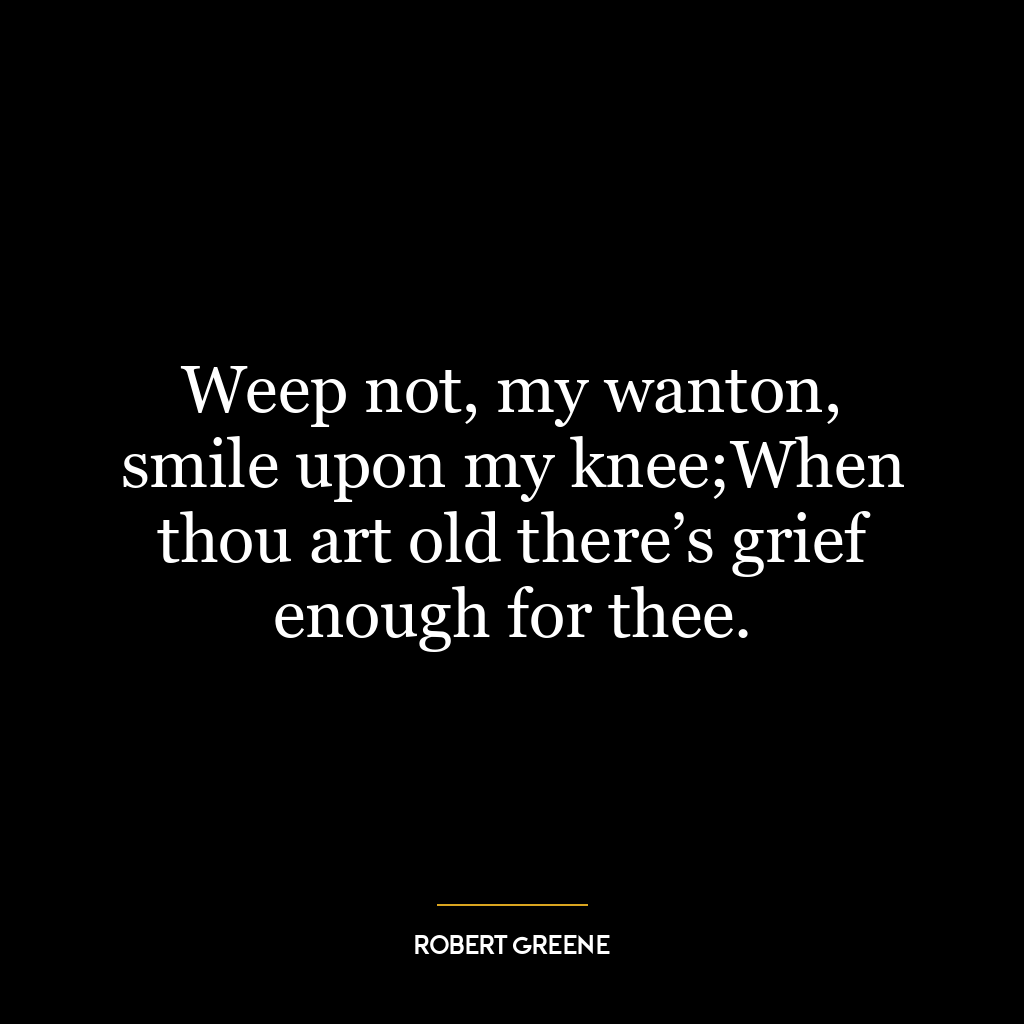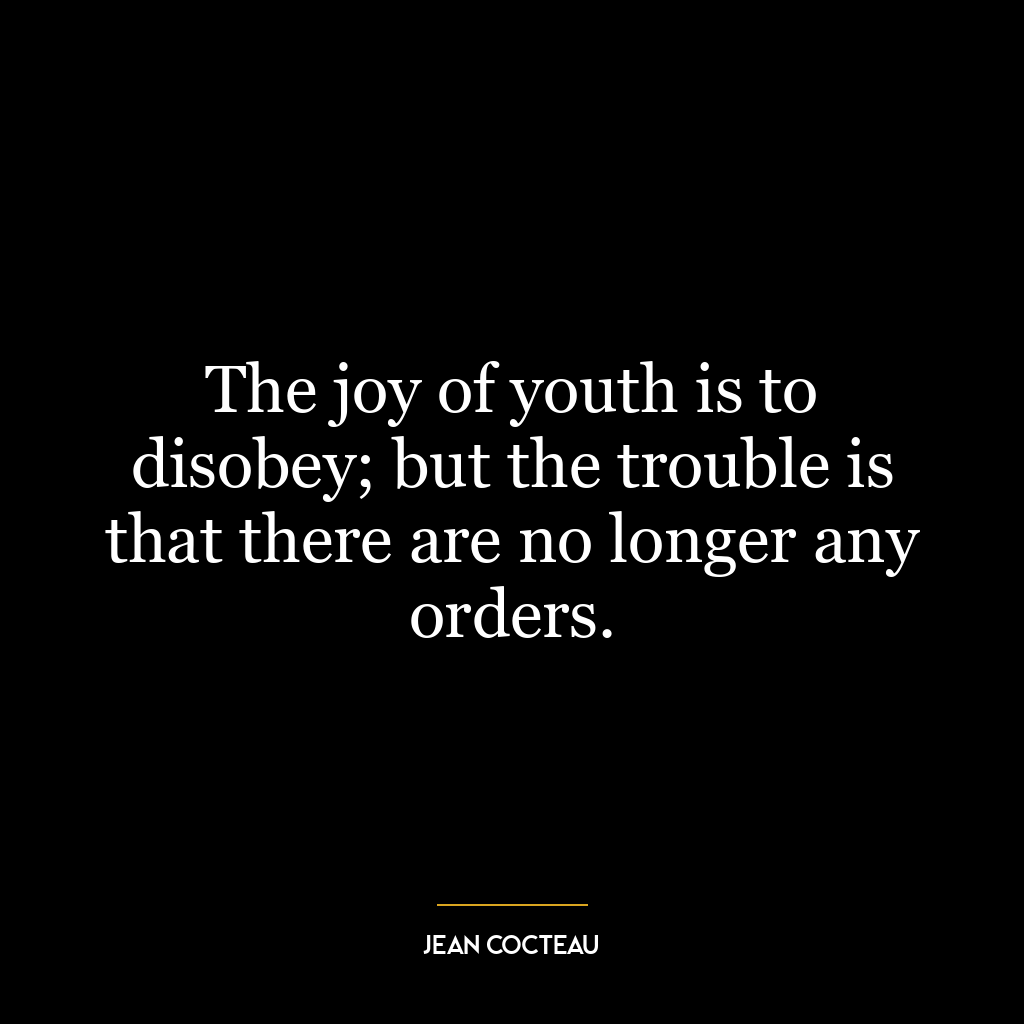Weep not, my wanton, smile upon my knee;When thou art old there’s grief enough for thee.
This quote is a poignant commentary on the fleeting nature of innocence and the inevitable trials that come with age. “Weep not, my wanton, smile upon my knee” speaks to a child’s innocence, urging them to enjoy their carefree youth. The speaker implores the child not to waste their innocence on sorrow, but rather to revel in the joy and simplicity of childhood.
“When thou art old there’s grief enough for thee” suggests that adulthood brings its own set of challenges and sorrows, implying that the child should enjoy their current state of innocence and carefreeness while they can. It’s a reminder that life’s hardships will come soon enough, and that there’s no need to rush into them.
In today’s world, this quote can be seen as a call to mindfulness and being present. It encourages us to appreciate and enjoy our current circumstances rather than constantly worrying about the future or dwelling on the past. This idea can be applied in personal development through practices that promote mindfulness and presence, such as meditation, yoga, or simply taking time each day to reflect on and appreciate the present moment.
Moreover, it can also be a reminder for adults to protect and cherish the innocence of children, to let them enjoy their childhood without unnecessary burdens. In a world where children are often forced to grow up too fast, this quote serves as a reminder of the importance of preserving childhood innocence.
Finally, this quote can also be seen as a commentary on the human tendency to anticipate problems or sorrows. It suggests that we should avoid this habit, instead focusing on the present and enjoying our current circumstances.















